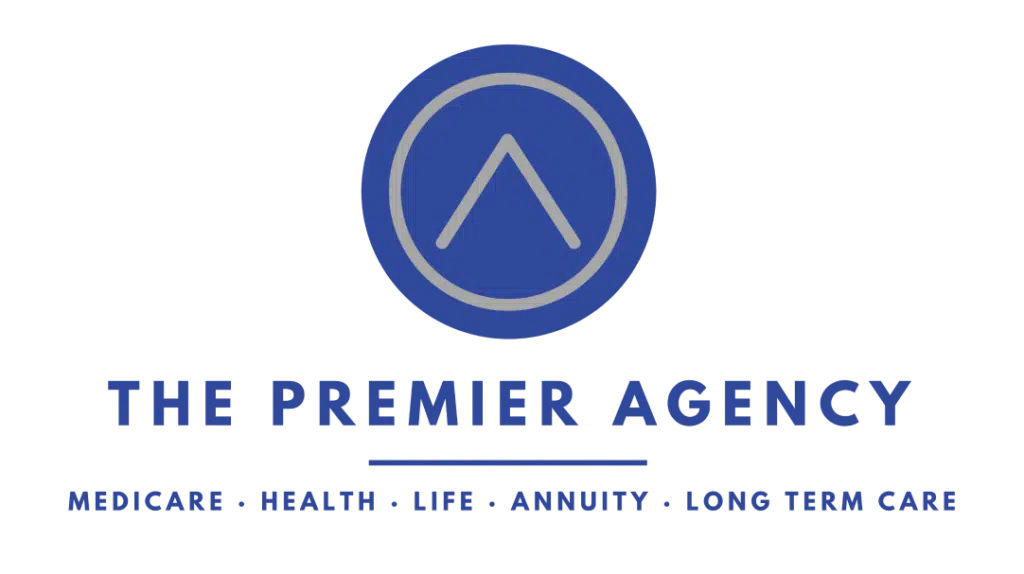Are you having trouble navigating healthcare for individuals with special needs in Arizona? Dual Special Needs Brokers are key in helping clients find suitable healthcare plans. This article will explain what these brokers do, how they are licensed in Arizona, and best practices for helping clients effectively. By understanding the role of Dual Special Needs Brokers, you will see how they help people manage their healthcare needs, including primary care and conditions like heart failure. Whether you want to become a broker or need help, this guide will give you useful information about this important healthcare role in Arizona.
Key Takeaways
- Dual Special Needs Plans in Arizona provide tailored coverage for those eligible for Medicare and Medicaid
- Dual Special Needs Brokers help clients navigate complex healthcare options and advocate for their unique needs
- Becoming a licensed dual special needs broker requires specific qualifications and ongoing professional development
- Brokers face challenges in staying informed about policy changes and managing diverse client situations
- Effective brokers build strong client relationships, provide personalized guidance, and ensure compliance with state regulations
Overview of Dual Special Needs Plans in Arizona

Dual Special Needs Plans in Arizona offer tailored coverage for those eligible for both Medicare and Medicaid. These plans provide key benefits, addressing the growing need for specialized care. Understanding dual eligibility, plan advantages, and coverage options is crucial for individuals seeking comprehensive healthcare, including nursing home care and caregiver support. Insurance deductibles and zip code-based availability also play important roles in plan selection.
Understanding Dual Eligibility for Medicare and Medicaid
Dual eligibility for Medicare and Medicaid in Arizona applies to individuals who qualify for both programs. These beneficiaries typically have low income and limited resources, meeting the criteria for Medicaid, while also being eligible for Medicare due to age or disability. Dual Special Needs Plans (D-SNPs) offer tailored coverage for this group, combining Medicare Advantage plans with additional benefits to address their unique healthcare needs. These plans often include prescription drug coverage and may provide extra services not typically covered by Original Medicare or standard Medicare Supplement insurance.
Key Benefits of Dual Special Needs Plans
Dual Special Needs Plans offer significant benefits to eligible individuals in Arizona. These Medicare Advantage plans provide comprehensive coverage, combining Medicare and Medicaid benefits into a single managed care program. Beneficiaries often receive additional services not typically covered by Original Medicare, such as dental, vision, and hearing care. Many plans also include prescription drug coverage and care coordination services, helping members navigate complex healthcare needs efficiently.
The Growing Need for Specialized Coverage
The growing need for specialized coverage in Arizona stems from the increasing prevalence of chronic conditions like diabetes among Medicare beneficiaries. Traditional Medicare and Medigap policies may not adequately address the complex healthcare needs of individuals with multiple chronic conditions. Dual Special Needs Plans fill this gap by offering tailored benefits, including comprehensive Medicare Part D prescription drug coverage and specialized care coordination for chronic diseases, ensuring that beneficiaries receive appropriate, cost-effective care.
The Vital Role of Dual Special Needs Brokers

Dual Special Needs Brokers in Arizona play a crucial role in helping clients access tailored healthcare plans. These professionals connect clients with appropriate plans, navigate complex healthcare options, and advocate for unique needs. They assist with disability-related concerns, telehealth services, physician selection, and choosing between health maintenance organizations and other insurance options.
Connecting Clients With Appropriate Plans
Dual Special Needs Brokers in Arizona play a crucial role in connecting clients with appropriate plans that address their specific healthcare needs and financial situation. These brokers consider factors such as income, disease management requirements, and potential expenses when recommending suitable plans. They help clients navigate the Arizona Health Care Cost Containment System (AHCCCS) and understand how different plans cover various healthcare costs, including premium payments and out-of-pocket expenses. By matching clients with the right plans, brokers ensure that individuals receive comprehensive coverage tailored to their unique circumstances.
| Broker’s Role | Client Benefits |
|---|---|
| Assess client needs | Tailored plan recommendations |
| Navigate AHCCCS | Improved understanding of coverage options |
| Explain cost structures | Better financial planning for healthcare |
Navigating the Complexities of Healthcare Options
Dual Special Needs Brokers in Arizona help clients navigate the complexities of healthcare options, including Medicare Advantage plans and primary care physician selection. These brokers assist clients in understanding their mental health coverage, nursing care options, and contract terms. By explaining the intricacies of different plans, brokers ensure clients make informed decisions about their healthcare, aligning their needs with the most suitable coverage options available.
Advocating for Clients’ Unique Needs
Dual Special Needs Brokers in Arizona advocate for clients’ unique health needs by ensuring their specific requirements are met. These brokers work to secure comprehensive coverage that addresses individual health conditions, medications, and care preferences. They help clients navigate complex health systems, ensuring access to necessary services and support.
- Assess individual health needs
- Match clients with appropriate coverage
- Ensure access to necessary services
- Advocate for client-specific requirements
Becoming a Licensed Dual Special Needs Broker in Arizona

Becoming a licensed dual special needs broker in Arizona requires specific qualifications and credentials. Aspiring brokers must complete several steps to obtain licensure, including education and exams. Ongoing professional development through continuing education is essential for maintaining licensure and staying updated on industry changes.
Required Qualifications and Credentials
Becoming a licensed dual special needs broker in Arizona requires specific qualifications and credentials. Candidates must complete pre-licensing education courses, pass state exams, and obtain a health insurance producer license. They also need specialized training in Medicare and Medicaid programs, focusing on dual-eligible beneficiaries. Brokers must maintain their license through ongoing education and adhere to state regulations:
- Complete pre-licensing education
- Pass state licensing exams
- Obtain health insurance producer license
- Undergo specialized Medicare and Medicaid training
- Maintain license through continuing education
- Adhere to Arizona state regulations
Steps to Obtain Licensure
Individuals must complete several steps to obtain licensure as a dual special needs broker in Arizona. These include finishing pre-licensing education courses, passing the state insurance exam, and submitting an application to the Arizona Department of Insurance. Aspiring brokers must also undergo background checks and fingerprinting. Once licensed, they need to complete additional certifications specific to Medicare and Medicaid programs to specialize in dual special needs plans.
Importance of Continuing Education
Continuing education is crucial for dual special needs brokers in Arizona to maintain their licensure and stay current with industry changes. Brokers must complete a set number of continuing education hours annually, focusing on topics such as Medicare updates, Medicaid regulations, and new healthcare policies. This ongoing learning ensures brokers can provide accurate, up-to-date advice to their clients, enhancing their ability to navigate complex healthcare options effectively.
Challenges and Opportunities in the Field

Dual special needs brokers in Arizona face challenges and opportunities in their field. They must stay informed about policy changes, manage diverse client situations, and leverage opportunities for professional growth. These aspects require ongoing adaptation and skill development to effectively serve clients with complex healthcare needs.
Staying Informed About Policy Changes
Dual special needs brokers in Arizona must stay informed about frequent policy changes in Medicare and Medicaid programs. They attend regular training sessions, webinars, and industry conferences to keep up with new regulations and benefit updates. Brokers also subscribe to official newsletters and participate in professional networks to share information and best practices:
| Information Source | Benefits |
|---|---|
| Training sessions | In-depth learning on specific topics |
| Industry conferences | Networking and broad updates |
| Official newsletters | Timely policy change notifications |
| Professional networks | Peer insights and shared experiences |
Managing Diverse Client Situations
Dual special needs brokers in Arizona face the challenge of managing diverse client situations. They work with individuals with varying health conditions, financial backgrounds, and care needs. Brokers must tailor their approach to each client, considering factors such as chronic illnesses, disability status, and income levels. This requires a deep understanding of both Medicare and Medicaid programs to provide personalized guidance and find the most suitable coverage options for each unique situation.
Leveraging Opportunities for Professional Growth
Dual special needs brokers in Arizona can leverage opportunities for professional growth by expanding their expertise and services. They may pursue additional certifications in specialized areas of healthcare, such as long-term care or mental health services. Brokers can also develop relationships with healthcare providers and community organizations to better serve their clients. Networking with other professionals in the field provides opportunities for learning and collaboration:
| Growth Opportunity | Benefit |
|---|---|
| Specialized certifications | Enhanced expertise in specific areas |
| Provider relationships | Improved client service and referrals |
| Professional networking | Knowledge sharing and collaboration |
Best Practices for Serving Clients Effectively

Effective dual special needs brokers in Arizona follow best practices to serve clients well. These include building strong client relationships, providing personalized guidance, and ensuring compliance with state regulations. By focusing on these areas, brokers can better meet the unique needs of their clients and navigate the complex healthcare landscape.
Building Strong Client Relationships
Dual special needs brokers in Arizona build strong client relationships by establishing trust and open communication. They take time to understand each client’s unique healthcare needs, financial situation, and personal preferences. Brokers maintain regular contact with clients, providing updates on plan changes and answering questions promptly. This personalized approach helps brokers tailor their services effectively and ensures clients feel supported throughout their healthcare journey.
Providing Personalized Guidance
Dual special needs brokers in Arizona provide personalized guidance by tailoring their recommendations to each client’s unique situation. They conduct thorough assessments of clients’ health conditions, financial circumstances, and care preferences to identify the most suitable dual special needs plans. Brokers explain complex Medicare and Medicaid benefits in clear, simple terms, ensuring clients understand their coverage options and potential out-of-pocket costs. This individualized approach helps clients make informed decisions about their healthcare coverage, maximizing their benefits while minimizing expenses.
Ensuring Compliance With State Regulations
Dual special needs brokers in Arizona prioritize compliance with state regulations to protect their clients and maintain their professional standing. They stay updated on Arizona’s insurance laws and Medicare/Medicaid guidelines, ensuring all their practices align with current requirements. Brokers carefully document client interactions, maintain accurate records, and adhere to privacy regulations to safeguard sensitive health information. This commitment to compliance helps build trust with clients and prevents potential legal issues.
Resources and Support for Brokers in Arizona

Dual special needs brokers in Arizona have access to various resources and support systems. Professional associations and networks offer valuable connections and industry insights. Training programs and workshops help brokers stay updated on industry changes. Technology tools enhance service delivery and client management. These resources empower brokers to provide effective, compliant services to their clients.
Professional Associations and Networks
Dual special needs brokers in Arizona benefit from professional associations and networks that provide valuable resources and support. These organizations offer networking opportunities, industry updates, and continuing education programs tailored to the unique needs of brokers working with dual-eligible clients. Membership in associations like the National Association of Health Underwriters (NAHU) or the Arizona Association of Health Underwriters (AAHU) gives brokers access to specialized training, advocacy efforts, and peer support, enhancing their ability to serve clients effectively.
Training Programs and Workshops Available
Dual special needs brokers in Arizona can access various training programs and workshops to enhance their skills and knowledge. The Arizona Department of Insurance offers regular seminars on Medicare and Medicaid regulations, while insurance carriers provide product-specific training sessions. Local community colleges and online platforms also offer courses on healthcare policy and insurance fundamentals, helping brokers stay current with industry trends and best practices.
Utilizing Technology to Enhance Services
Dual special needs brokers in Arizona use technology to enhance their services and streamline client management. They employ customer relationship management (CRM) software to track client information, appointments, and plan details. Digital platforms help brokers compare insurance plans quickly, while secure messaging systems facilitate confidential communication with clients. These technological tools enable brokers to provide more efficient, accurate, and personalized services to their dual-eligible clients.
Conclusion
Dual Special Needs Brokers in Arizona help clients understand their healthcare options. They connect clients with plans that meet their specific needs. These brokers need certain qualifications and must stay updated on policy changes. They also manage various client situations while following state rules.
By building strong relationships and providing tailored guidance, brokers help their clients get the right coverage that combines Medicare and Medicaid benefits. Understanding what these brokers do is important for anyone looking for specialized healthcare coverage or considering a career in this field. They play a vital role in supporting vulnerable populations in Arizona’s healthcare system.




